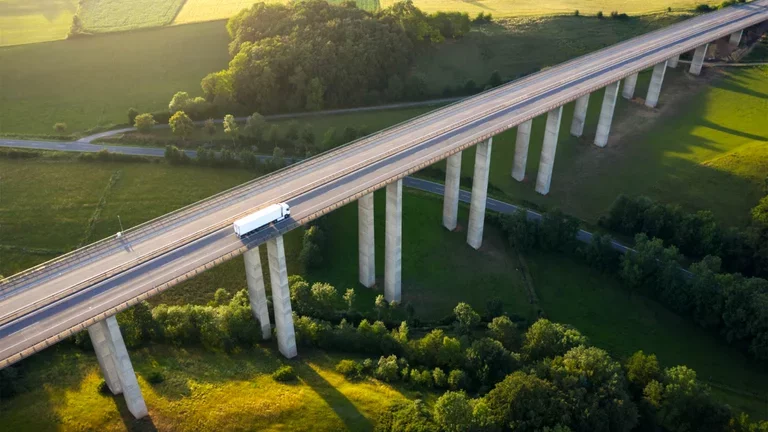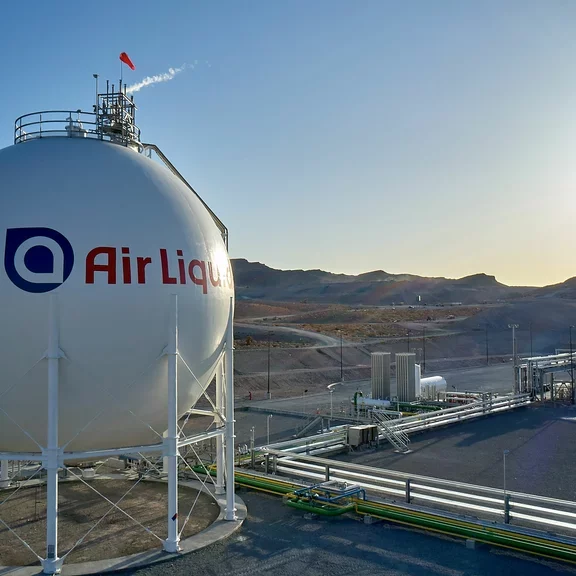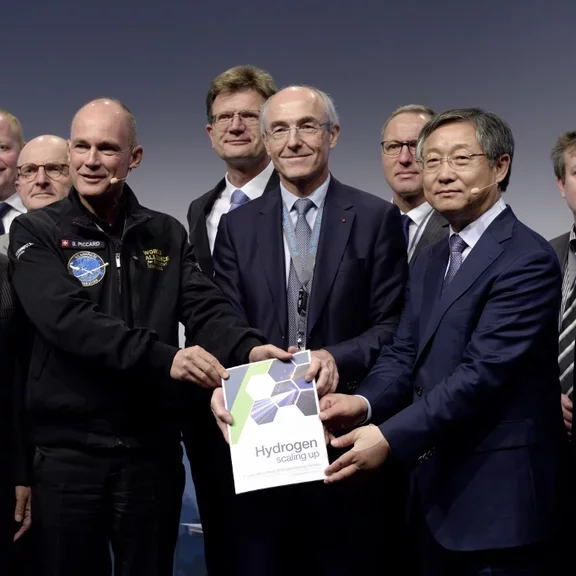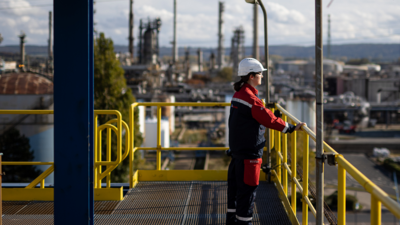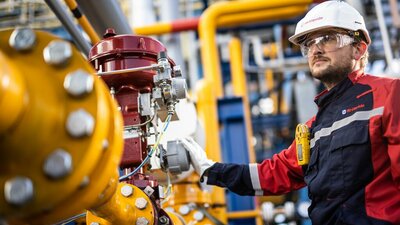Hydrogen
Hydrogen expert for more than 60 years and precursor of the movement for a hydrogen society
As a pioneer in hydrogen, Air Liquide is convinced that this molecule will be decisive in the energy transition. The Group is responding to the urgency of climate change and is committed to reach carbon neutrality by 2050. Hydrogen will be key to achieving this goal by making it possible to meet two major challenges to which Air Liquide is committed: decarbonizing heavy industry and revolutionizing mobility.
-
A strong commitment to produce renewable or low-carbon hydrogen
-
Mastering the entire hydrogen value chain
-
Technologies and know-how for multiple applications in industry and mobility
Hydrogen, at the heart of Air Liquide's activities
Thanks to its unique hydrogen expertise developed in industry (space, aeronautics, refining) over the last 60 years, Air Liquide masters the entire value chain: production, transport, storage and distribution.
This unique positioning and technological expertise, particularly in extreme cryogenics, makes Air Liquide a key player in the implementation of hydrogen projects, enabling it to meet all the needs of its customers in many sectors of activity.
Hydrogen has many uses. As a high density energy carrier, non-toxic, non-corrosive and non-polluting, hydrogen can be used in fuel cells to generate heat and electricity. It is also a useful raw material for many industrial sectors. It can be stored on a large scale and transported in liquid or gaseous form.

“Hydrogen could represent up to 20% of the energy mix by 2050. Such a transition implies the need of a prompt development of infrastructures and ecosystems in order to unlock the potential of this molecule for society. Air Liquide puts at the heart of its strategy the acceleration of the scaling-up of low-carbon technologies to meet the challenges of industry and mobility.
”
Armelle Levieux
Member of the Executive Committee, Vice President of Innovation, overseeing the Hydrogen Energy and Electronics world business lines
A major lever for the decarbonization of industry
Through its Large Industries business line, Air Liquide already serves customers in the world's main industrial basins. This proximity, combined with our expertise and technologies, allows us to develop synergies between the industrial and mobility markets, to ensure the availability of hydrogen in large quantities.
Hydrogen can be used in many industrial sectors that are challenging to decarbonize, for its energy potential or as a raw material:
- Refining, to desulfurize hydrocarbons
- Chemistry, to produce methanol and synthetic fuels
- Metallurgy, for heat treatment
But also in Electronics, as a carrier gas, research and analysis, welding, cement production, glassmaking...
Revolutionizing the transportation sector with hydrogen
When derived from renewable energies or low-carbon, hydrogen is a leading alternative energy source for decarbonizing transportation. Air Liquide draws on its industrial facilities, technologies and expertise to develop applications for hydrogen mobility. In 20 years, Air Liquide has installed more than 200 hydrogen stations around the world.
Having proved its worth in the space sector, hydrogen in its liquid state offers significant advantages for heavy mobility (trucks, ships, aircraft). Its energy density facilitates on-board storage, rapid refuelling and long range. Liquid hydrogen makes it possible to massify production and optimize the supply chain (a 3.6-tonne truckload of liquid hydrogen is equivalent to 16 truckloads of gaseous hydrogen at 200 bar). The Group has installed a liquefier with a capacity of 30 tonnes per day in North Las Vegas (Nevada), which supplies hydrogen mobility in California.
Air Liquide is strongly committed to deploying large-scale projects and forming strategic alliances to accelerate the transition of heavy transport to hydrogen.
Producing low-carbon hydrogen
A major priority for Air Liquide is to scale-up its low-carbon and renewable hydrogen production capacity in order to respond effectively and sustainably to the needs of industrial and heavy transportation customers who, like us, are committed to the energy transition.
Our technologies and our capacity for innovation enable us to offer, depending on market needs, renewable or low-carbon hydrogen produced
- By electrolysis with electricity generated from renewable sources (solar, wind, hydro) or low-carbon sources (nuclear)
- By methane or biomethane reforming with CO2 capture and storage
Thanks to electrolysis, renewable energies - intermittent by nature - can be converted into hydrogen. As the molecule can be stored and transported so that it can be accessed at any time, hydrogen is a way of not losing the renewable energy produced during peak production periods.
The Hydrogen Council
Launched in 2017 in Davos under the impetus of Air Liquide and Toyota, the Hydrogen Council is a global initiative designed to bring the voice of hydrogen to the international stage in order to promote a long-term vision of hydrogen technologies and uses, and to accelerate its large-scale deployment by mobilizing all the players in the ecosystem, both industrial and political. As such, it has published several studies on the subject.
Today, the Hydrogen Council brings together nearly 150 members - companies from the energy, transport and industry sectors as well as financial players - all determined to contribute to limiting global warming to 1.5°C.
